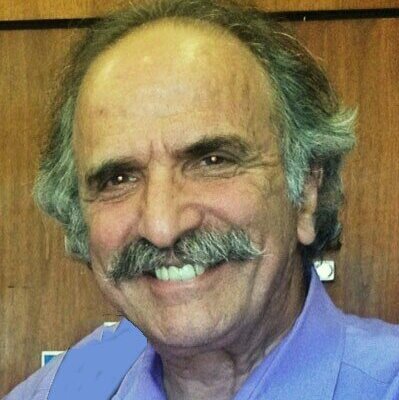
(8-21-19) Dear Pete,
Would you be kind enough to share this edited version of an Op Ed that I published in USA Today?
It calls on policy makers to reject false connections between mass murder and mental health conditions and to take on meaningful gun control legislation, a commitment that the White House is now walking back (see Jonathan Capehart’s passionate piece in the Washington Post.)
My original submission used different language in several places, called for the rejection of discriminatory mental health data bases that advance surveillance based on the unfounded threat we pose and emphasized that:
“it’s a lot easier to focus on us than on the complex social factors that contribute to mass murder in America, the political divide, racism, economic inequality and hopelessness and the lack of political will to pass common sense gun control laws. At the same time, our political leaders in the White House, Congress and State Houses must make it explicitly clear that promising Red Flag’ laws and Extreme Risk Protection Orders are not intended to target any one group like ours, but extend to all and everyone who has access to guns and who is deemed to pose a danger to themselves or others.”
Thank you, Harvey Rosenthal
Don’t Scapegoat, Institutionalize People Like Me After Shootings
By Harvey Rosenthal USA Today Opinion Contributor
I was first diagnosed with bipolar illness more than 40 years ago, after a six-week stay in the psychiatric unit of a Long Island, New York, community hospital. I entered into a personal process of recovery and, five years later, began my life’s work as a ward aide at a New York State Psychiatric Center in Albany and ultimately as an advocate for people like me.
Thanks to my work, I have personally known, served and supported many Americans who have had to deal with the most challenging mental healthconditions. I can’t adequately convey how deeply damaging it is when we are dragged once again into the spotlight of blame and vilification after yet another horrific episode of mass murder.
What happens next is inevitable.
Horrified, heartbroken Americans issue fervent calls for gun control reform, while the gun lobby and its allies work just as fervently to shift the conversation and the focus onto “the mentally ill.” Quickly, the talk turns to blaming the “deranged” “demented”, “disturbed,” “twisted” mentally ill monsters.
These are the very words that have made identifying and getting help so much harder.
Misconceptions About Mental Illness
There is one word here easy to understand: Crazy. In our shock, horror and outrage, it’s very common to think or say “you’d have to be crazy” to commit these horrific atrocities. Crazy, as in, impossible to understand why someone would be moved to commit such unimaginable, unthinkable and shocking violence.
But “crazy” is not a diagnosis. And the hate, racism, bigotry and white supremacy that President Donald Trump condemned after tragedies in El Paso, Texas, and Dayton, Ohio, are not symptoms.
The president was wrong last week to conflate those who commit mass murders with those of us who are in need of basic care because of our illness. We do not need to call for policies to rebuild institutions that are no substitute for appropriate and intensive outreach, support and housing.
Mental illnesses involve a distinct set of struggles that some of us have with our thinking, our mood and our judgment. This may seem to be a trivial distinction, but it’s critically important to us and to the nearly 1 in 5 Americans who live with mental illness.
Despite long-entrenched public fears, many studies show that, when substance abuse is not a factor, we are typically not more violent than the general public. And those with a major mental illness account for just about 4% of acts of self-reported physical violence in our nation.
In fact, a 2005 study found that people with severe mental illness are 11 times more likely to be victims of violence than others, an appalling finding that continues to be ignored and left unaddressed.
We must be clear that “dangerousness” is not a diagnosis, and that a diagnosis of mental illness does not lead to violence.
Dr. Jeffrey Swanson, a researcher on mental illness and violence, has found that behaviors such as festering anger, alienation and bitterness are common among mass shooters (concluding that) These traits don’t meet the threshold of a mental disorder, but they can lead to violence.
Look at the last few years’ tragedies to witness a growing list of angry, bitter, alienated and violent people with guns, some of whom may also be political or domestic terrorists. They are the ones who are killing our fellow Americans — not us.
Real Reform Is Community-Based
We seem to only talk about mental health services and policy reform after a tragedy, but then we do so little to carry those changes out.
We will not find effective or humane answers in “lock them up” policies that are a return to the institutions of the past.
Instead, we must skillfully and voluntarily help people in the greatest distress within their own communities. Federal and state mental health agencies must not play to false, costly and coercive solutions that play to public fears and that seek to force rather than to fix services.
So many people with mental illness have shared with me the great distress and anger they feel about how we are being portrayed and treated, and the identification we feel with other marginalized groups who have been similarly targeted.
It’s time to stop defaming and blaming us and to get serious about addressing the growing climate of fear, prejudice, anger and violence in our country.
To get there, we’ll need inspirational leadership that unites us rather than separates us from each other. It’s leadership of this kind that will indeed make us all safer.
ABOUT THE AUTHOR: Harvey Rosenthal is the CEO of New York Association of Psychiatric Rehabilitation Services in Albany, New York. 



